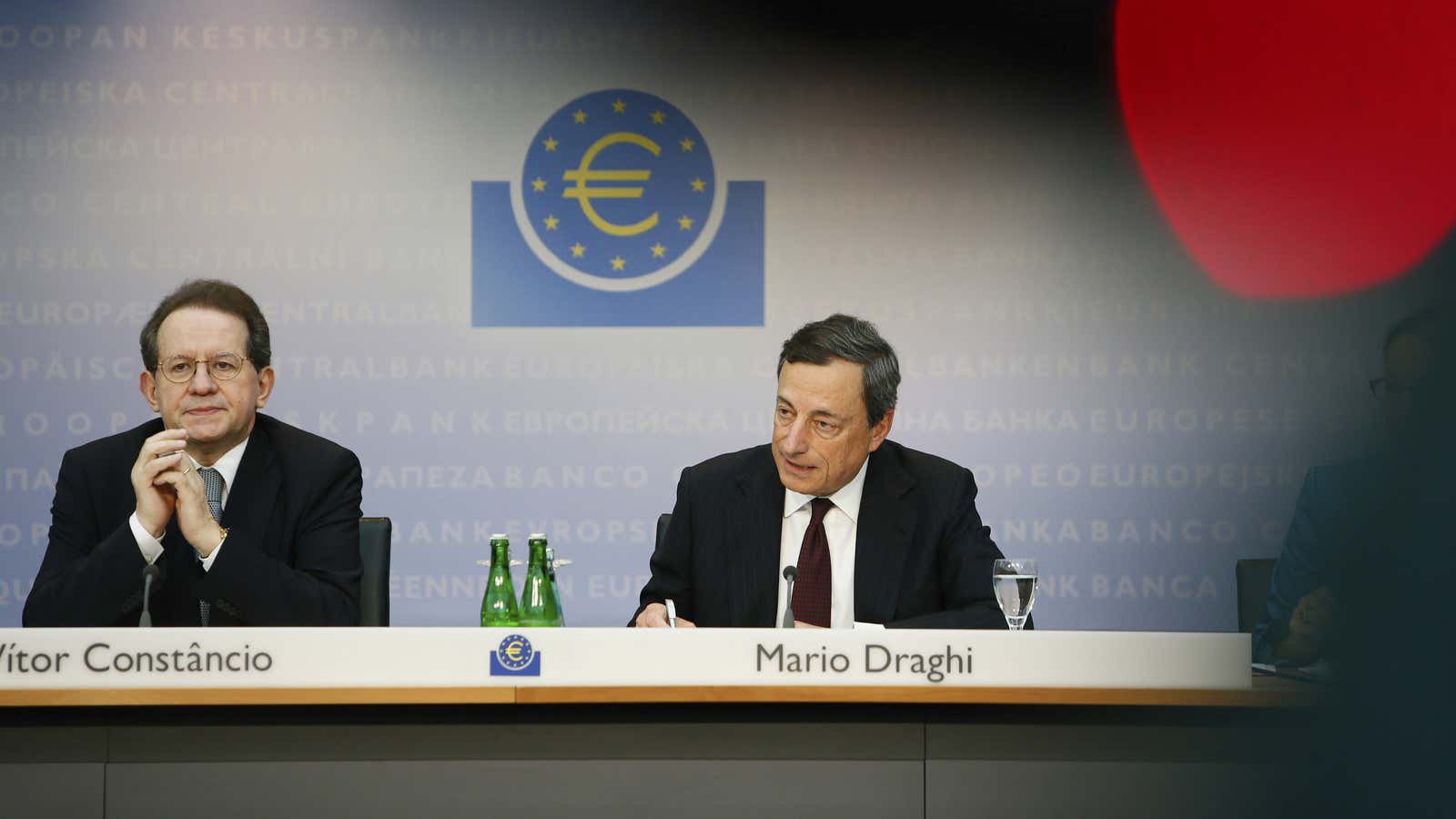Many expected the new Bank of England governor Mark Carney to break from his predecessor and provide clearer forward guidance after the UK central bank’s rate-setting meeting. But today the European Central Bank president Mario Draghi surprised markets by joining Carney in his forthrightness.
At a press conference announcing the ECB’s decision to keep interest rates at 0.5%, Draghi said that the ECB planned to maintain official rates at or below current levels ”for an extended period of time” and could even drop rates lower. That’s a significant departure from the ECB’s traditional reluctance to signal its plans significantly into the future, with Draghi himself acknowledging it was “unprecedented.” He said:
“Looking ahead, our monetary policy stance will remain accommodative for as long as necessary. The Governing Council expects the key ECB interest rates to remain at present or lower levels for an extended period of time. This expectation is based on the overall subdued outlook for inflation extending into the medium term, given the broad-based weakness in the real economy and subdued monetary dynamics.”
In announcing that it would keep its official bank lending rate at 0.5%, the BoE’s Monetary Policy Committee headed by Carney issued a statement saying that expectations of future rate increases were “not warranted by the recent developments in the domestic economy.”
Draghi denied that the forward guidance was a reaction to US Federal Reserve chairman Ben Bernanke’s recent announcement that the Fed would probably this year begin winding down the bond purchases designed to stimulate the US economy. But Draghi acknowledged the existence of recent market volatility and cited “large continuing weakness in the economy.”
Europe’s central bankers today effectively distanced themselves from the Fed’s approach and highlighted the ongoing relative economic weakness in Europe compared to the US. Draghi’s comments at the press conference are worth reading in this context. They’re even more interesting if they’re indeed launching us into a new era of more forthright central bank communication out of Europe.
